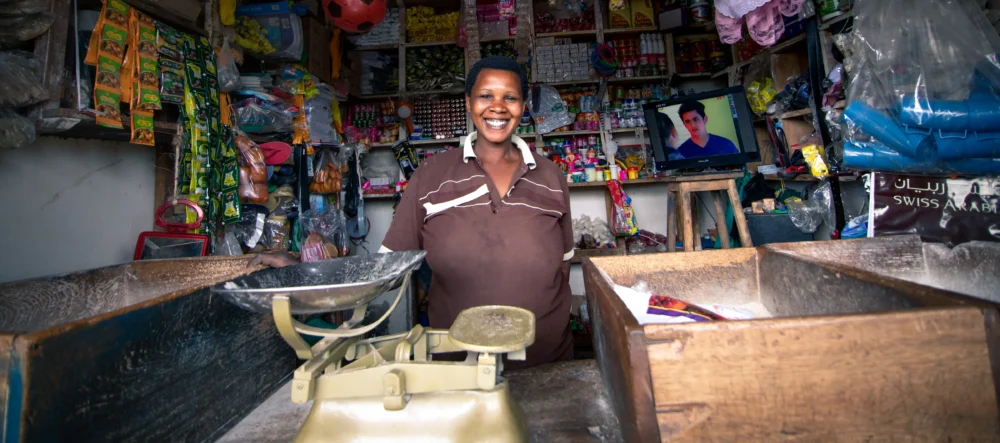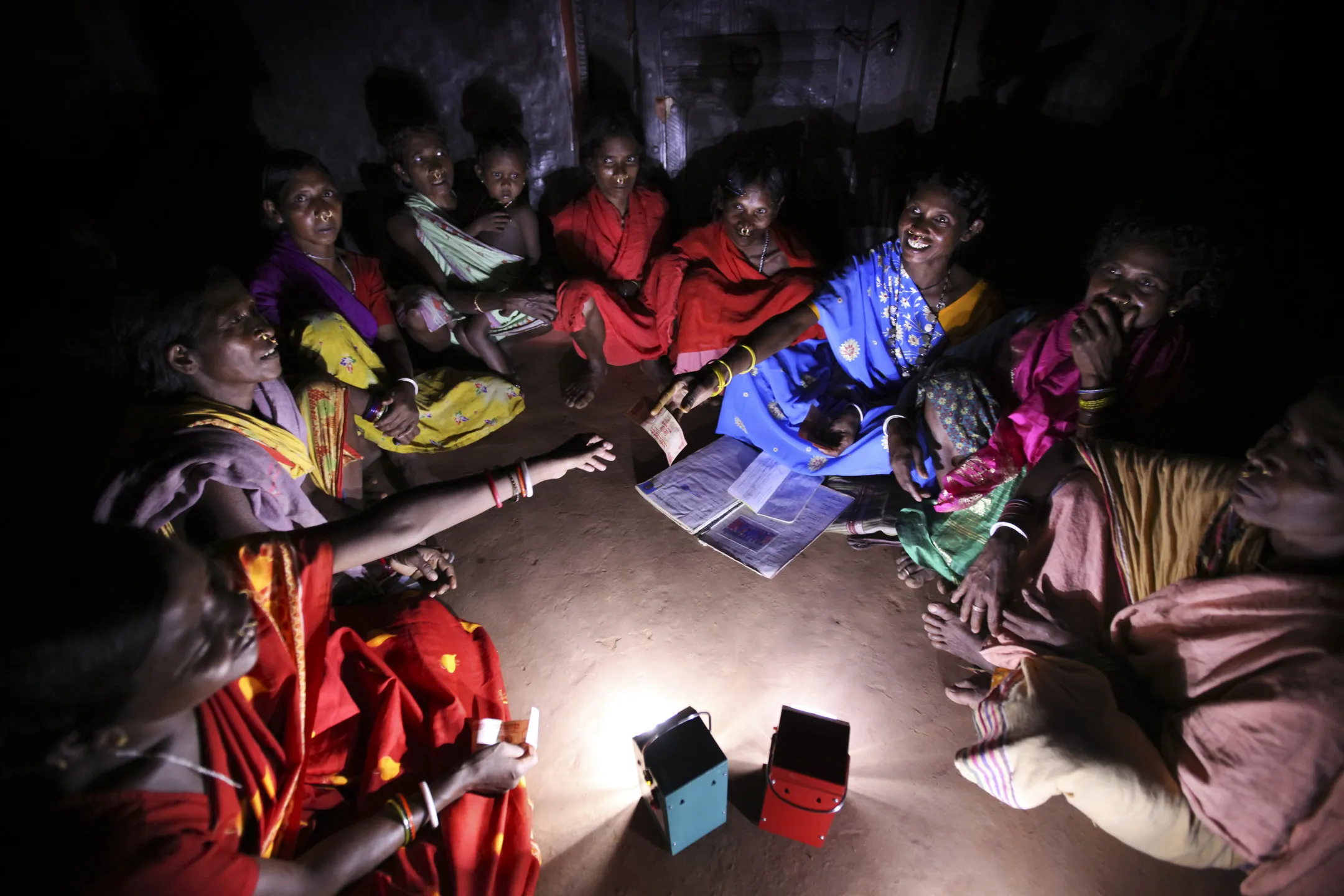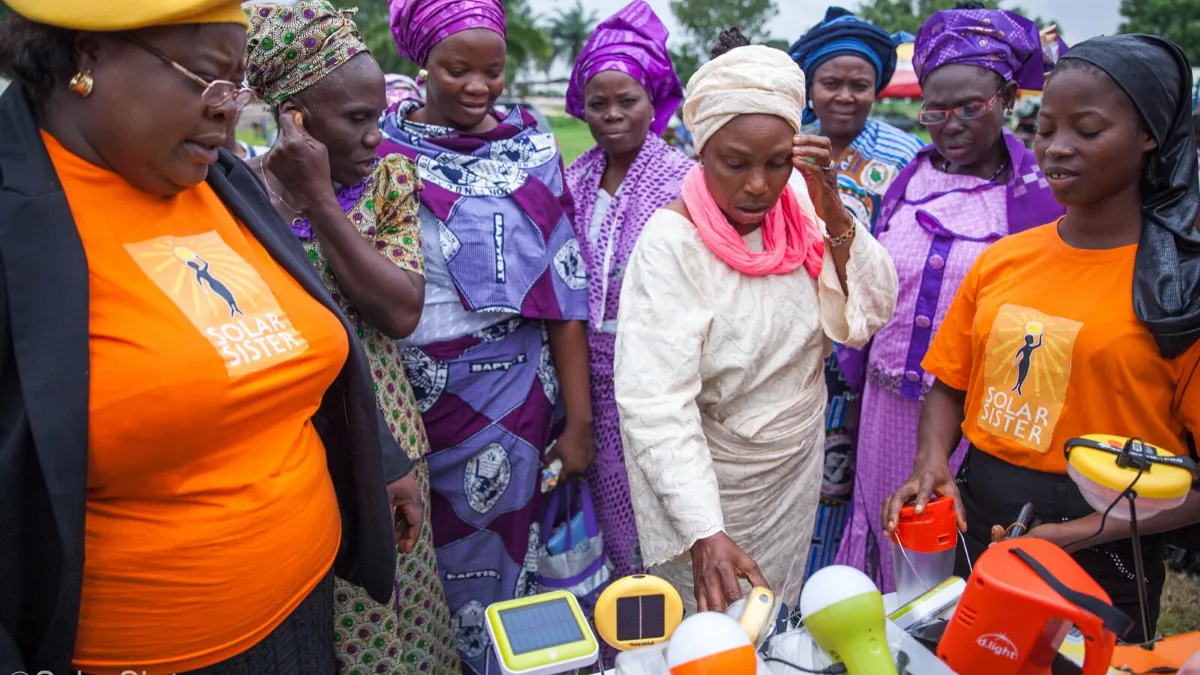Five Takeaways from the Securing an Inclusive Energy Transition Webinar
The webinar covered how women are using off-grid appliances to advance gender equality and spark economic growth

By Zoë Carruthers, Energy Saving Trust, Low Energy Inclusive Appliances Team
On 11 March, Efficiency for Access hosted a webinar on female empowerment and entrepreneurship in the energy access sector. The webinar was held in recognition of International Women’s Day and as part of the Appliances Empower campaign, which sought to advance gender equality and inclusion through energy-efficient appliances.
We were happy to welcome an all-women panel from a range of organisations, including Dr. Joy Clancy, Professor at the University of Twente and Technical Advisor for ENERGIA, Susie Wheeldon, Research Lead at GOGLA, and Stephanie Finigan, Manager of Operations at Value for Women.
The webinar covered how women are using off-grid appliances to advance gender equality and spark economic growth. The speakers also discussed the increasing involvement of women within the off-grid sector and the benefits of gender mainstreaming beyond the headcount metrics. We highly encourage you to watch the full recording. To give you a glimpse into the discussion, here are some of our key takeaways from the discussion:
Empowering women with energy empowers everyone

According to Dr. Joy Clancy, when you empower one woman to become an off-grid energy entrepreneur, the benefits will be far-reaching. Women employment tends to benefit entire households and communities, for example, when mothers have access to meaningful employment opportunities and modern energy, her children will often have better access to educational resources and more time to study. Stephanie Finigan from GOGLA explained that when women have access to appliances, they tend work longer hours and employ more women, which can translate to gains in household income. Empowering women through energy ignites a ripple effect in society and strengthens women’s rights while improving local economies altogether.
The off-grid energy sector remains dominated by men
According to Stephanie Finigan from GOGLA, women make up 27% of the workforce within the off-grid sector. Moving forward, increased gender parity is needed in all areas of the off-grid sector, including the supply chain, engineering roles and research roles.
Dr. Joy Clancy of ENERGIA explained that involving women in the development, delivery and use of modern energy leads to an increase in the sustainability and adoption rates of services within the industry. As a result, energy access can be achieved faster with the intentional inclusion of women.
It’s obvious that the off-grid sector needs to better engage women, but it lacks the practical know-how

A vast number of enterprises and development programs focused on women’s involvement in within the sector agree that there is room for improvement when it comes to engaging women. However, the reality for many companies is that they lack the practical knowledge on how to engage women in meaningful ways. Stephanie Finigan spoke to the fact that more needs to be done to include women on a practical level. For example, when it comes to evaluating the performance of male and female sales agents, companies should be sure to consider specific barriers when comparing, such as access to transport and physical security, as these barriers have been historically known to adversely affect women’s’ performance.
To better engage women, off-grid companies need to take specific actions to level the playing field. Dr. Joy Clancy added that practical engagement must also consider women’s competing priorities. For example, childcare and household demands must be studied when thinking about entrepreneurship opportunities for women.
Data helps drive gender equality
Each of the speakers raised the need for more data to support the growth of gender equality within the sector. Stephanie Finigan highlighted the need for clean energy businesses to adopt gender inclusion targets beyond simple headcounts and metrics. Similarly, she highlighted the need for greater data on what factors contribute to women’s success within the off-grid sector. Establishing a better understanding of what successful female entrepreneurs are doing, along with the data to back it up, will strengthen sector-wide efforts to support women and promote growth.
Societal norms do change and we need to find ways to encourage this
Biases and prejudices are often borne through routine tasks. The speakers attested to the fact that if roles of women change, so will people’s perceptions. Dr. Joy Clancy reminded us that norms can and do change over time, referring to the phrase, “girls didn’t do that when I was your age.” Therefore, the question is not if societal norms can be changed, but when. We need to find more ways to encourage change.
***
To achieve gender parity and inclusivity within the off-grid sector, action must be taken to strengthen women’s entrepreneurship abilities and encourage female empowerment. Efficiency for Access encourage organisations and companies to support the practice of gender mainstreaming through our Empowering Access Pledge. 40 organisations signed the pledge and committed to championing gender mainstreaming in their current and future projects. To learn more about gender mainstreaming, please visit our website.